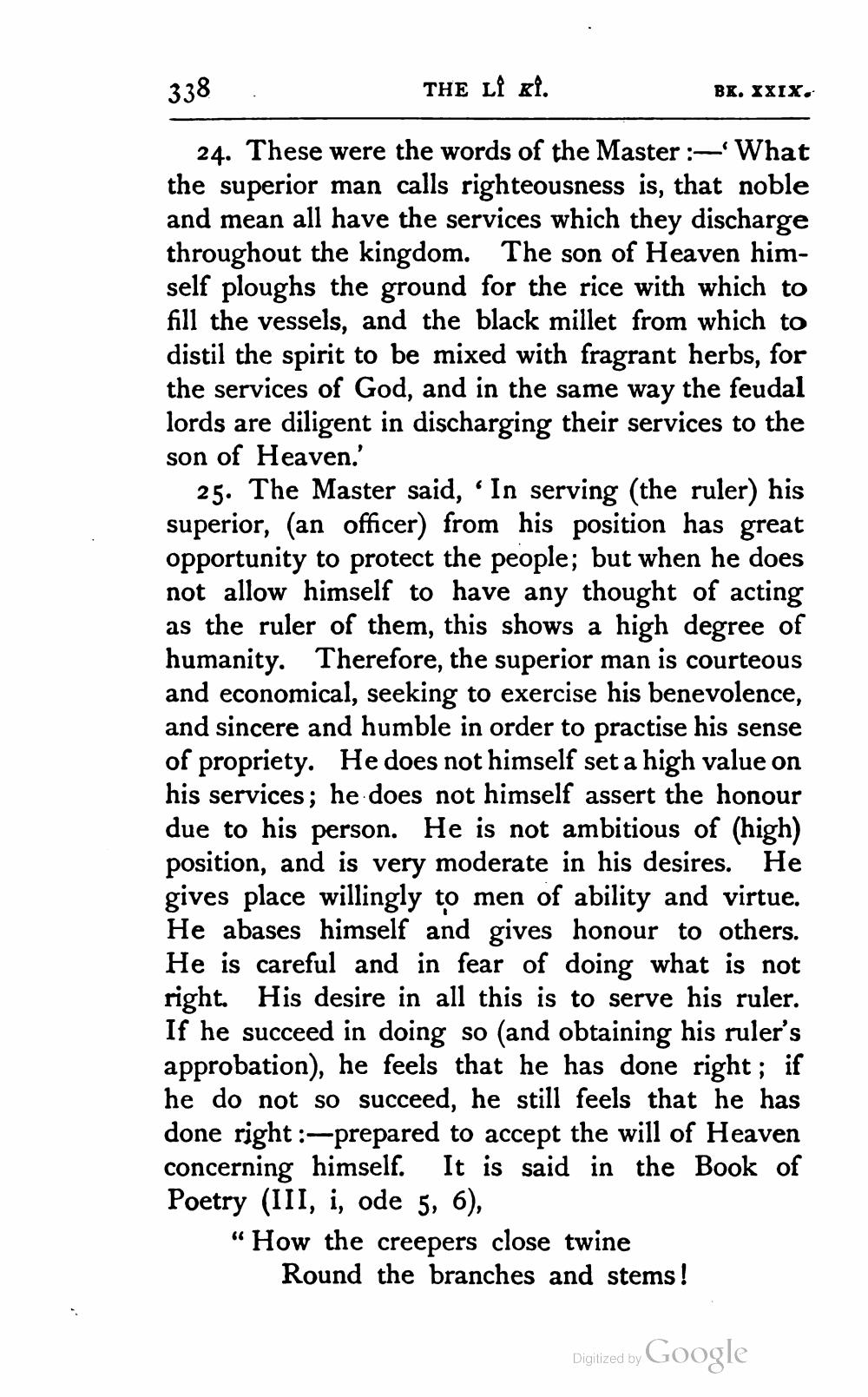________________
338
.
THE LÎ ki.
BK. XXIX.
24. These were the words of the Master :—'What the superior man calls righteousness is, that noble and mean all have the services which they discharge throughout the kingdom. The son of Heaven himself ploughs the ground for the rice with which to fill the vessels, and the black millet from which to distil the spirit to be mixed with fragrant herbs, for the services of God, and in the same way the feudal lords are diligent in discharging their services to the son of Heaven.'
25. The Master said, 'In serving (the ruler) his superior, (an officer) from his position has great opportunity to protect the people; but when he does not allow himself to have any thought of acting as the ruler of them, this shows a high degree of humanity. Therefore, the superior man is courteous and economical, seeking to exercise his benevolence, and sincere and humble in order to practise his sense of propriety. He does not himself set a high value on his services; he does not himself assert the honour due to his person. He is not ambitious of (high) position, and is very moderate in his desires. He gives place willingly to men of ability and virtue. He abases himself and gives honour to others. He is careful and in fear of doing what is not right. His desire in all this is to serve his ruler. If he succeed in doing so (and obtaining his ruler's approbation), he feels that he has done right; if he do not so succeed, he still feels that he has done right :-prepared to accept the will of Heaven concerning himself. It is said in the Book of Poetry (III, i, ode 5, 6), “How the creepers close twine
Round the branches and stems!
Digitized by Google




